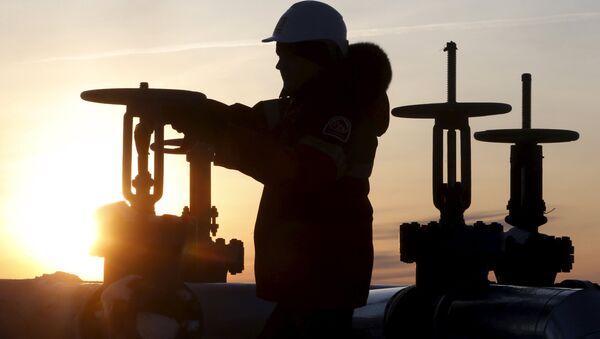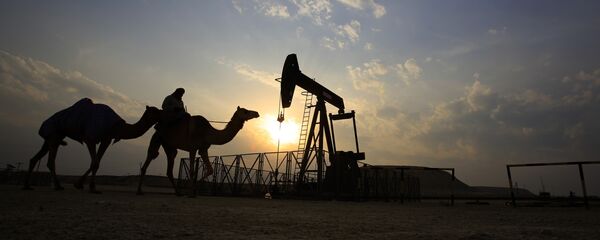MOSCOW (Sputnik) — Earlier in the day, Novak said that major oil producers would meet in the capital of Qatar, Doha, on April 17 to discuss the agreement on oil production freeze.
"If such agreements will be reached, the re-balancing will be reduced according to our estimates, to the term from six to nine months. At the end of 2016, in the beginning of 2017 we could see the balance of supply and demand, and consequently, the stabilization of the oil market," Novak told reporters.
Unless the deal is agreed on, the oil market will reach the balance in late 2017, Novak said.
Global oil prices plunged from $115 to less than $30 per barrel between June 2014 and January 2016, hitting their lowest levels since 2003 amid an ongoing glut in global oil supply.
‘Expedient’ Oil Production Freeze Up to Year-End
The Russian Energy Ministry considers it appropriate to freeze crude oil production up to the end of 2016, though there are no clear agreements between the oil-producing countries on the term of the freezing so far, the ministry’s head said.
In February, the energy ministers of Saudi Arabia, Qatar, Venezuela, and Russia discussed the current oil market situation in the Qatari capital of Doha and agreed to freeze oil production at January levels if other countries followed suit.
"It [the freeze] was presupposed for at least six months to monitor whether the mechanism was working or not, afterward, [there is a need] to gather and discuss what to do next. There is no clear term. We will discuss the terms in April. I think it would be appropriate [to freeze oil production] up to the end of the year," Alexander Novak told reporters.
Earlier in the day, he said that major oil producers would meet in the capital of Qatar, Doha, on April 17 to discuss the issue.
Some 15 countries, including Iran, have so far tentatively confirmed their participation in the Doha meeting, according to the Russian energy minister.


